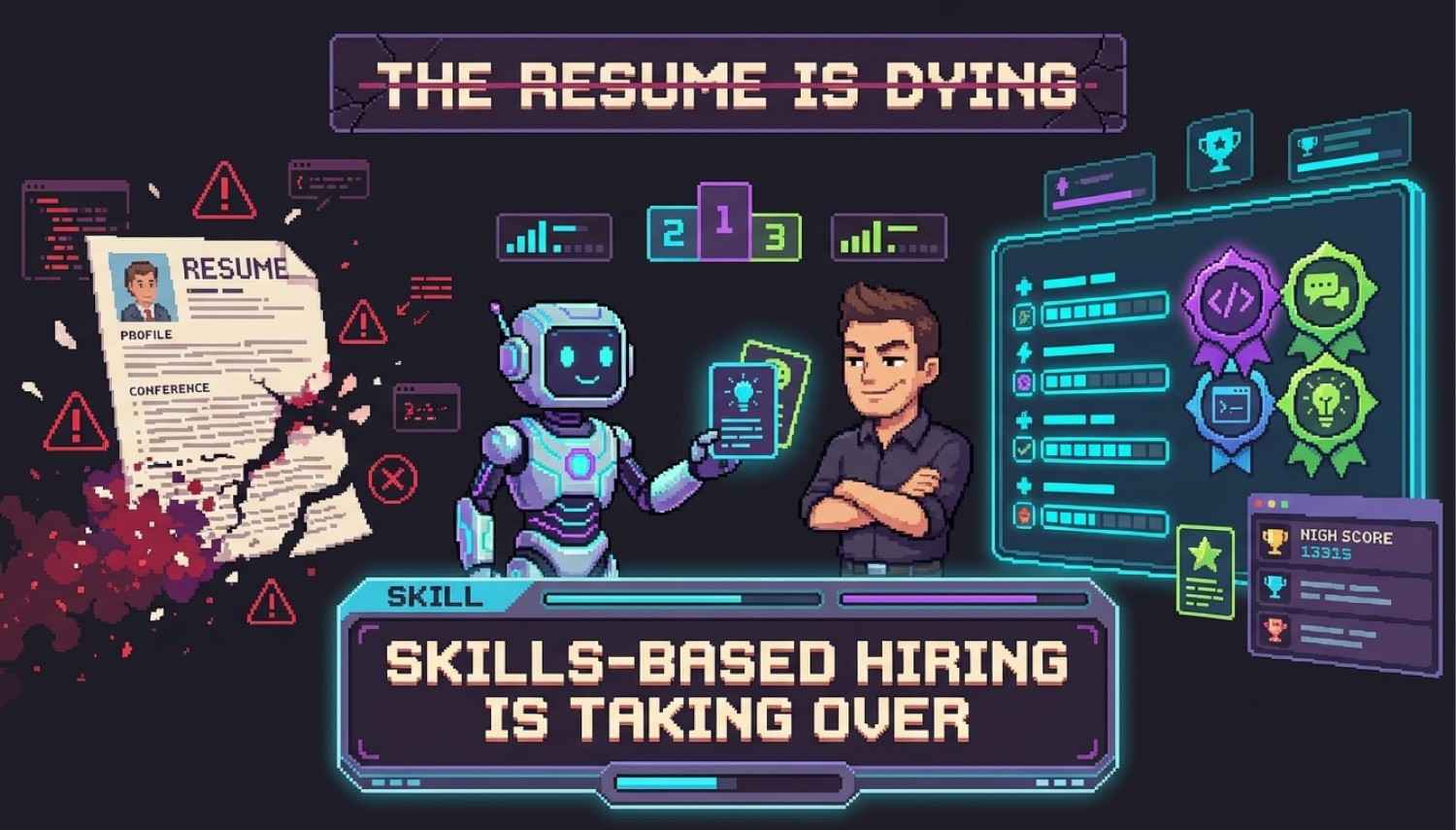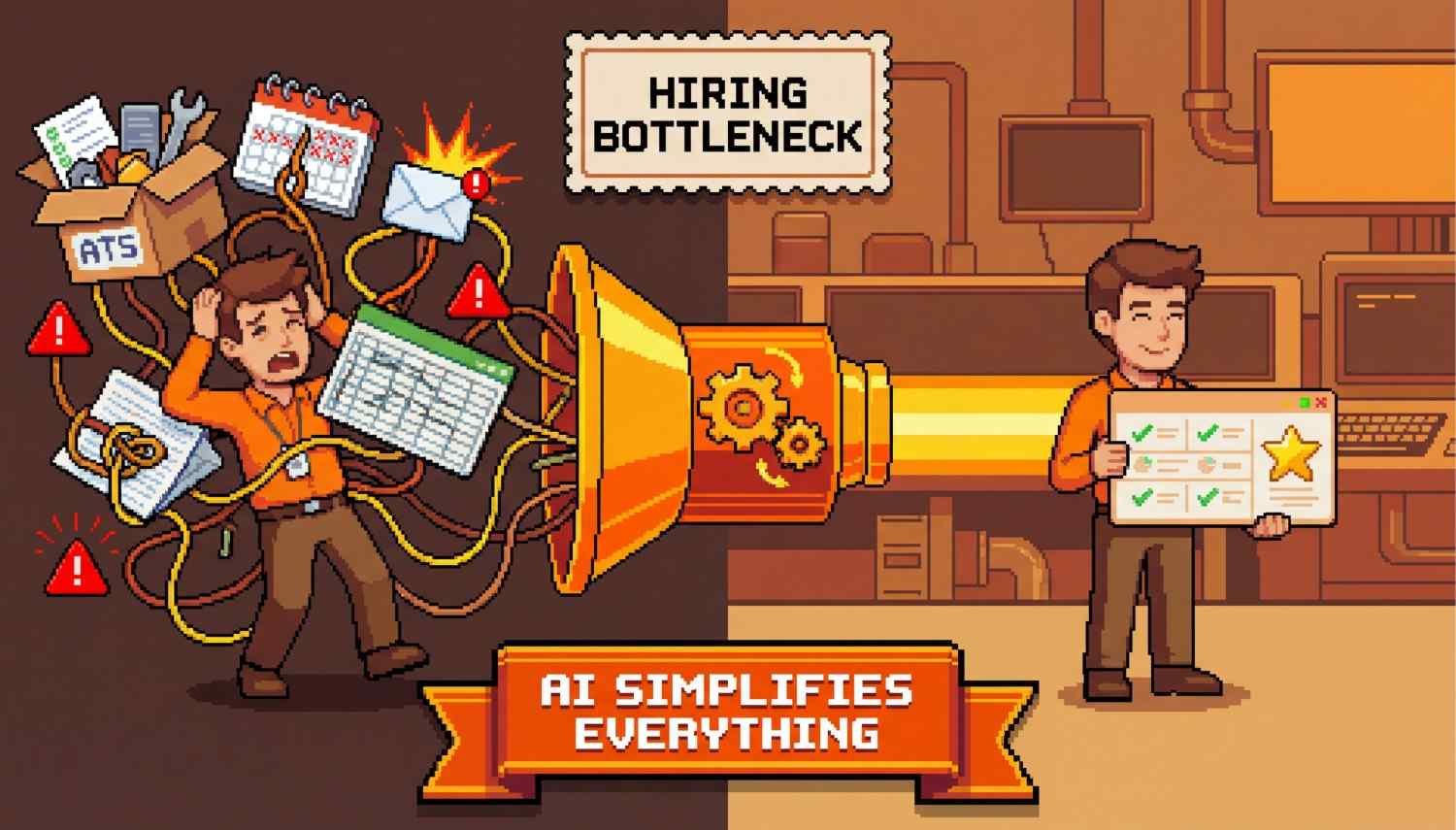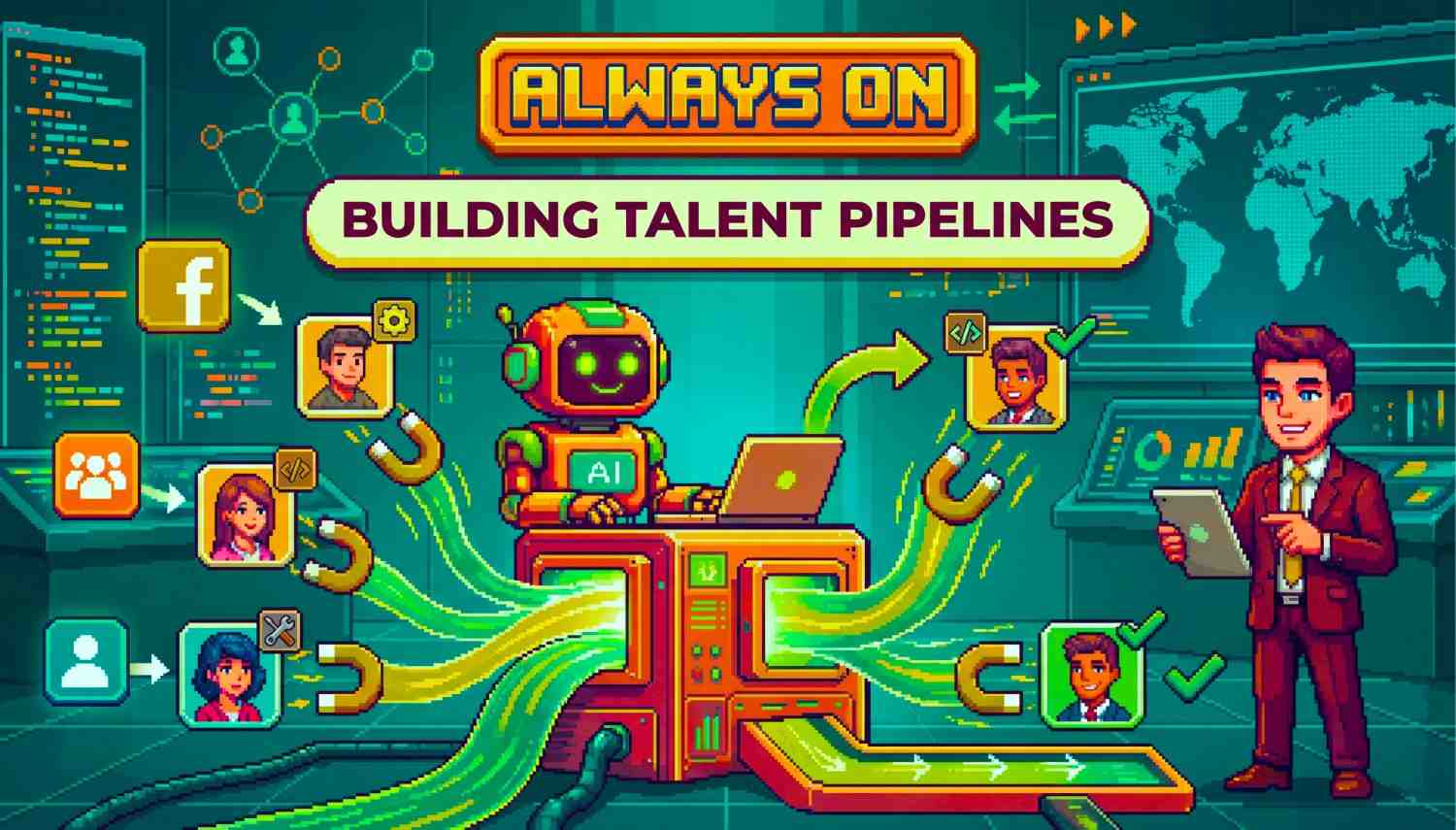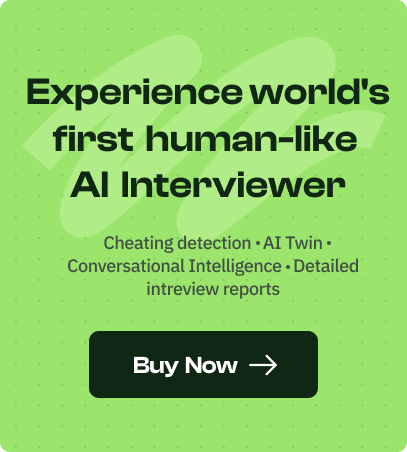Choosing the right AI screener can organize the hiring process and reduce bias. While there are numerous options available, it is important for organizations to remain focused when choosing the right AI screener tool, as not all AI screeners offer the same level of accuracy.
Companies should consider some key features when selecting an AI screener!
1. Speed and Efficiency
Time is of the essence in recruitment. An AI screener should optimize the initial candidate evaluation by automating tasks like resume screening and candidate selection. This reduces the time recruiters spend on manual reviews.
An effective AI screener ensures that the most skilled candidates move to the next level of the hiring process by using objective criteria to evaluate candidates, thus maintaining high-quality selection without compromise.
How does it work?
- AI screeners use Natural Language Processing (NLP) and machine learning algorithms to analyze candidates' responses to interview questions.
- The tool quickly assesses verbal and written communication skills and provides actionable insights for decision-making.
- It also evaluates technical knowledge and cultural fit.
- For example, an AI screener can analyze an interview in minutes and produce a detailed report on the candidate’s strengths and weaknesses.
Why it matters:
- The hiring process becomes faster, smoother, and more efficient.
- Automation of initial screenings allows recruiters to focus on more engaging tasks.
- Pro Tip: Choose an AI screener that generates a comprehensive report to help recruiters make faster, informed decisions while maintaining transparency.
2. Customization & Flexibility
Recruitment needs vary across organizations, and a fixed standard approach will not suffice. The right AI screener tool should offer customization options that align with an organization’s unique needs.
How does it work?
- Customization features allow tailoring the screener to evaluate candidates based on role-specific criteria.
- The tool should adjust the weightage for technical skills, soft skills, or cultural fit according to the job description.
Pro Tip:
- Select an AI screener with a user-friendly interface for customization, enabling adjustments without extensive technical expertise.
3. Bias Reduction & Ethical Screening
Unconscious bias can lead to unfair hiring practices. An AI screener should minimize bias and promote ethical screening by evaluating candidates solely on their skills, experience, and qualifications, rather than on gender, age, or race.
How does it work?
- AI screeners are designed to assess candidates based on objective job-related factors.
- Advanced tools incorporate bias-detection algorithms that identify and flag potentially discriminatory language or hiring patterns, promoting an equitable and inclusive recruitment process.
Why it matters:
- Ensures a more inclusive recruitment process by giving all candidates equal opportunities based on merit.
- Fosters a culture of fairness and innovation.
- Pro Tip: Regularly audit the AI screener for bias and ensure it complies with ethical AI standards, with clear transparency on decision-making processes.
4. Real-Time Analytics & Feedback
Real-time analytics enable organizations to make rational, data-driven decisions during the hiring process. The selected AI screener should provide real-time analytics and feedback, aiding recruiters in candidate analysis.
How does it work?
- AI screeners generate detailed reports on candidate performance, including scores for specific skills, behavioral traits, and overall fit.
- These insights allow recruiters to make informed decisions quickly and help candidates understand their strengths and areas for improvement.
Why it matters:
- Quick responses help decrease time-to-hire and improve the candidate experience.
- Providing feedback enhances a sense of fairness and cooperation during the hiring process.
- Pro Tip: Ensure the AI screener can integrate with your existing HR software or Applicant Tracking System (ATS) to streamline data and improve efficiency.
5. Seamless Integration & Scalability
As businesses grow, recruitment needs evolve. The AI screener should offer seamless integration and scalability to maintain an efficient and effective recruitment process regardless of team size or candidate volume.
How does it work?
- Seamless Integration: The tool should easily connect with existing HR tools.
- Scalability: It should manage a growing number of candidates and adapt to new roles and departments.
Why it matters:
- A scalable AI screener can support both small team recruitment and large global campaigns, ensuring effective workflow and addressing diverse recruitment challenges.
Conclusion
The use of AI screeners is transforming recruitment by offering faster, more effective, and data-driven ways to evaluate potential candidates. Focusing on the key features mentioned above ensures that the selected AI screener addresses current and future hiring demands. It is crucial for companies to invest time in choosing an AI screener tool that aligns with their goals and values.






